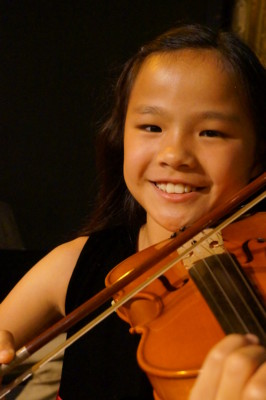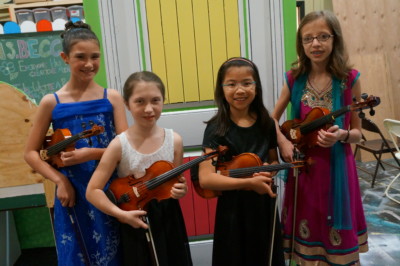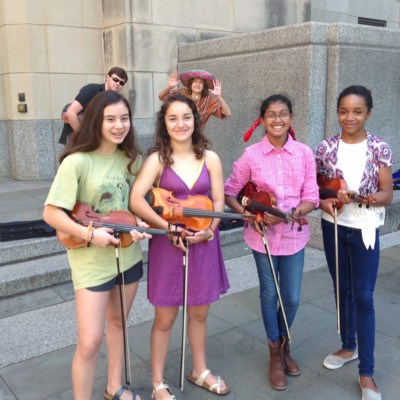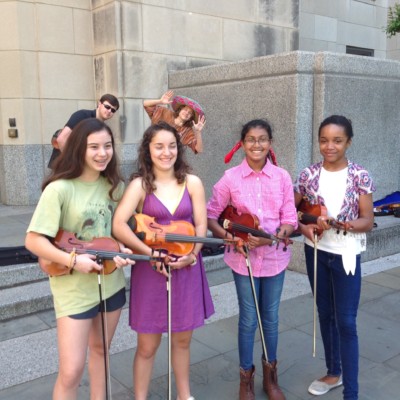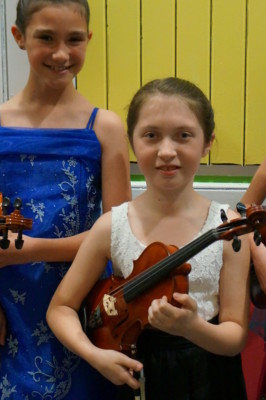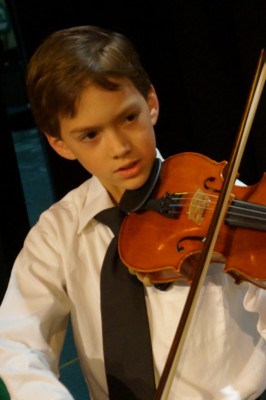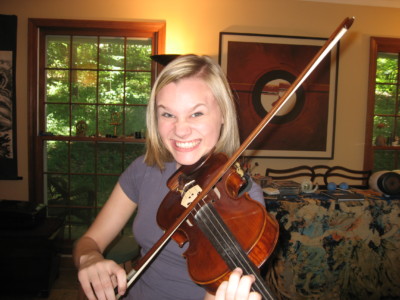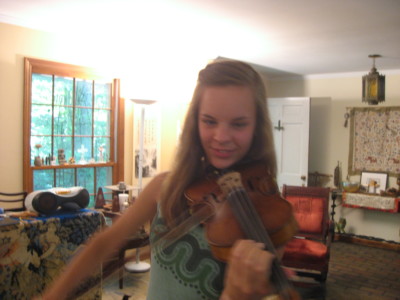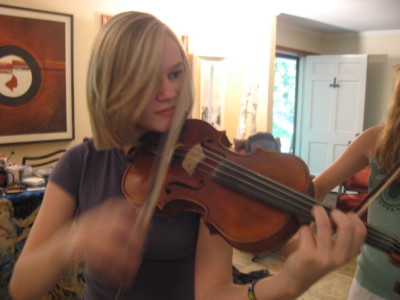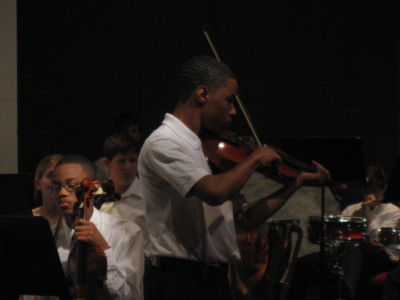Getting Started
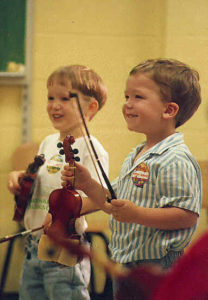 The best time to start Suzuki violin is early as possible. Young children enjoy learning, and the sociability of learning in the extended family structure of the Suzuki Method provides. Older children will also be successful in the Suzuki Method, but in all cases of beginning studies, it is important to have vital parental support at home.
The best time to start Suzuki violin is early as possible. Young children enjoy learning, and the sociability of learning in the extended family structure of the Suzuki Method provides. Older children will also be successful in the Suzuki Method, but in all cases of beginning studies, it is important to have vital parental support at home.
The parent should provide an atmosphere of musical awareness at home. It is good to build a collection of classical music for your home library, along with other styles that you enjoy.
Listening is an important part of setting the stage for musical training. Many believe that musical development begins in the womb, and babies are “listening” even before birth. Music exists in the space of silence, so providing a home that has quiet time, and music will support your child’s tendencies to love classical music, and encourage their interest in music lessons.
The next step is to find an excellent teacher to guide you and your child through the process of learning the violin. LaDonna Smith, founder of Birmingham Suzuki Violin Association is an experienced and proven registered Suzuki teacher. She is successful and engaging with her students. They have fun, and work hard. Students come for private lessons once a week, and group lessons are held twice monthly on Saturday mornings at The Dance Foundation in Homewood. She has scheduled student concerts, recitals, and performances, promotes Summer Suzuki Institutes, and has an active life as a professional musician!
In the foundation Suzuki studies, the parent attends the lessons and plays an important role by learning to play the instrument right alongside (and ahead) of the child. To be an effective coach at home for your child, you must first feel what it’s like to hold a violin, and learn the basic skills. Then you will really understand more effectively your role as “teacher at home,” because you have personally experienced what it is like to learn the instrument, and you will be more equipped with a deeper understanding of what’s being asked of your child. Your child will also have a deeper respect for your active role as helper at home.
You will be responsible for creating a consistent practice time and providing an example by your own enthusiasm to play. Your child will observe your interest and want to do the same. You will also provide your child positive feedback for their efforts, and, once again, the all important appropriate listening experience at home.
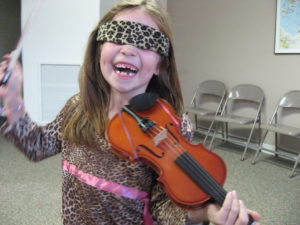
Mary Alice Bobo is blindfolded
Always go to your lessons on time. Take a notebook or record the lesson points on your smartphone. Accept your child where he or she is in the process. All children progress in their own time. It is not important how fast we learn songs. What is important is the early attention the parent provides to reinforce setting up good technical habits for playing well, and for fostering musical enjoyment and sensitivity. Your part is the love, the attention to detail from the teacher’s guidance, and sharing an enjoyable growing experience with your child.
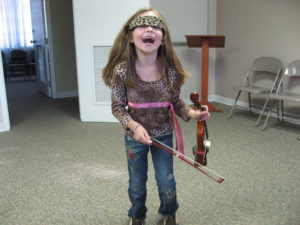
So silly at violin lesson!
LaDonna accepts students throughout the year. However, Summertime is an ideal time to get started. You will have the opportunity to try it on, to get a first hand experience, and to see if violin study is right for you. If your child takes to the instrument, then you will be guaranteed a lesson time, and ready for full immersion in the fall!
It is best to contact LaDonna by email or a phone call. Because she teaches in the afternoons, she accepts phone calls from prospective students in the morning during weekdays from 9:00 a.m. until 1:00 p.m. She will be happy to answer questions you may have about her studio practice, schedule availability, and tuition. Don’t worry about purchasing an instrument for your child right away. There are many different sizes, and good quality instruments are important for success. She will help you find the correct instrument when the time comes.
You may contact LaDonna by email at LSimprov@aol.com

